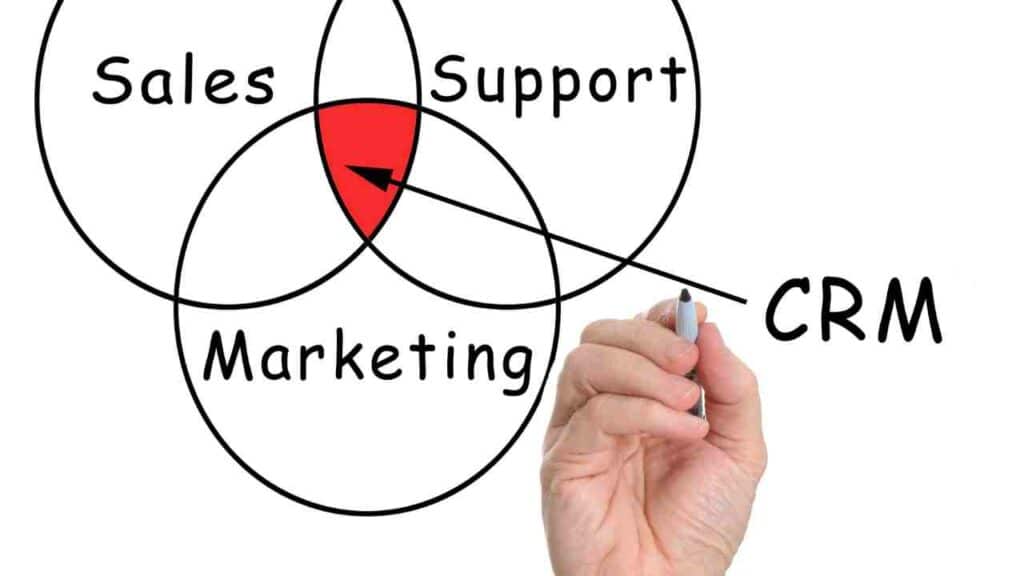Opportunities for Increasing Metrics with CRM Solutions

Customer Relationship Management (CRM) solutions have become an essential tool for businesses of all sizes. These software platforms offer a wide range of features and functionalities that can help organizations streamline their sales and marketing processes, improve customer satisfaction, and ultimately increase their metrics. In this article, we will explore the various opportunities that CRM solutions present for businesses to enhance their performance and achieve their goals.
1. Centralized Customer Data
One of the key advantages of using a CRM solution is the ability to centralize customer data. Instead of scattered information across different systems and departments, a CRM system allows businesses to store and access all customer-related data in one place. This centralized approach provides several opportunities for increasing metrics:
- Improved Customer Segmentation: With a CRM solution, businesses can segment their customer base more effectively based on various criteria such as demographics, purchase history, and engagement levels. This enables targeted marketing campaigns and personalized communication, leading to higher conversion rates and customer satisfaction.
- Enhanced Lead Management: By capturing and organizing leads within a CRM system, businesses can track their progress through the sales funnel more efficiently. This allows for better lead nurturing, timely follow-ups, and increased conversion rates.
- Efficient Cross-Selling and Upselling: With access to comprehensive customer data, businesses can identify opportunities for cross-selling and upselling. By understanding customers’ preferences and purchase patterns, businesses can offer relevant products or services, leading to increased revenue per customer.
2. Streamlined Sales Processes
A CRM solution can significantly streamline sales processes, providing opportunities for increased metrics:
- Automated Lead Assignment: CRM systems can automatically assign leads to sales representatives based on predefined rules or algorithms. This ensures a fair distribution of leads and reduces response time, resulting in higher conversion rates.
- Efficient Sales Pipeline Management: CRM solutions offer visual representations of the sales pipeline, allowing businesses to track deals at each stage. This enables sales teams to identify bottlenecks, prioritize activities, and close deals faster.
- Improved Sales Forecasting: By analyzing historical data and current sales activities, CRM systems can provide accurate sales forecasts. This helps businesses make informed decisions, allocate resources effectively, and set realistic targets.
3. Enhanced Customer Service
A CRM solution can also play a crucial role in improving customer service, leading to increased metrics:
- Efficient Ticket Management: CRM systems often include ticketing functionalities that allow businesses to manage customer inquiries and support requests more effectively. By tracking and resolving tickets in a timely manner, businesses can enhance customer satisfaction and loyalty.
- Personalized Customer Interactions: With access to a customer’s complete history and preferences, businesses can provide personalized interactions across various channels. This level of personalization fosters stronger customer relationships and increases the likelihood of repeat purchases.
- Proactive Customer Support: CRM solutions can automate proactive customer support by sending reminders, notifications, or relevant content based on customer behavior or specific triggers. This helps businesses stay engaged with customers and address their needs before they even arise.
4. Data-Driven Decision Making
CRM solutions provide businesses with valuable insights and analytics that can drive data-driven decision making:
- Real-Time Reporting: CRM systems offer real-time reporting capabilities, allowing businesses to monitor key metrics and performance indicators. This enables timely adjustments to strategies and tactics, leading to improved outcomes.
- Identifying Trends and Patterns: By analyzing customer data, CRM solutions can help businesses identify trends, patterns, and correlations. This information can be used to optimize marketing campaigns, improve product offerings, and enhance overall business performance.
- Measuring Customer Satisfaction: CRM systems often include features for measuring customer satisfaction, such as surveys or feedback forms. By collecting and analyzing this data, businesses can identify areas for improvement and take proactive measures to enhance customer experience.
CRM solutions offer numerous opportunities for businesses to increase their metrics and achieve their goals. By centralizing customer data, streamlining sales processes, enhancing customer service, and enabling data-driven decision making, businesses can improve customer segmentation, lead management, cross-selling, upselling, sales forecasting, ticket management, personalized interactions, proactive support, and overall business performance. To leverage these opportunities, businesses should consider implementing a CRM solution like SaasExpert.ca – Your All-In-One Sales and Marketing Platform for small businesses, agency owners, and marketers.
Learn more about “Using CRM Solutions to Enhance Metrics Tracking” right here.
Frequently asked questions about Opportunities for Increasing Metrics with CRM Solutions.

The Transformational Power of CRM
In today’s fast-paced business environment, the importance of optimizing metrics for increased profitability can’t be overstated. Customer Relationship Management (CRM) solutions emerge as the cornerstone for this endeavor, streamlining operations and skyrocketing metrics that matter the most. 📈
1. How Can CRM Solutions Directly Impact Key Business Metrics? 📊
The beauty of CRM lies in its multi-faceted impact on business metrics. From customer satisfaction to lead conversion, a robust CRM system offers data analytics tools to assess, measure, and improve. By utilizing CRM, you’re essentially converting raw data into actionable insights.
2. What Are the Top Metrics That CRM Influences? 🎯
CRM impacts a plethora of metrics including Customer Lifetime Value (CLV), Customer Retention Rates, Lead Conversion Rates, and Sales Revenue. It allows you to capture and analyze customer interactions, thus providing insights into your customers’ preferences, behaviors, and engagement levels.
3. Can CRM Systems Help in Automating Data Metrics? 🤖
Absolutely! Automation is one of the stellar features of modern CRM systems. Not only does it collate data but it also generates real-time reports that can be customized to focus on specific metrics. This kind of automation frees up valuable time for your team to focus on what they do best: selling.
4. How Can CRM Solutions Improve Team Performance Metrics? 📈
CRM solutions come packed with features like task management, real-time notifications, and collaborative tools, all of which contribute to enhanced team productivity. By removing repetitive tasks and manual data input, CRM helps in keeping the team focused and accountable, which in turn improves performance metrics.
5. How Cost-Effective is Implementing a CRM for Metrics Improvement? 💰
The ROI from a CRM system can be astronomical if implemented effectively. Besides, most CRM solutions nowadays offer scalable pricing options, making it a financially viable choice for businesses of all sizes. The key is to choose a CRM that aligns well with your specific metric goals.
Capitalizing on CRM for Stellar Metrics
Why CRM Matters for Metrics Enhancement
Utilizing CRM for metrics is not a mere luxury but a strategic imperative. If you’re keen to edge out competitors, look no further.
Key Features to Look For
Opt for CRMs that offer Data Analytics, Automation, Customization, and Integration. These four pillars will guarantee an uplift in your most important metrics.
The Magic of Data Analytics
Data Analytics is the fuel that powers the engine of any CRM solution. It dissects consumer behavior patterns, funnels performance, sales figures, and much more. 📊
Seamless Integration for Holistic Development
Integration capabilities of a CRM solution are indispensable. They allow you to connect with other software tools such as ERP systems, Marketing Automation, and even AI-based algorithms. 🔄
CRM Automation: A Time-Saver that Boosts Metrics
Automating mundane and repetitive tasks is crucial for saving time and reducing errors. From sending emails to updating records, CRM takes care of it all. 🤖
Customization: One Size Doesn’t Fit All
With customization, you can adapt the CRM according to the unique needs of your business. Tailor-made features mean a more accurate impact on the metrics that matter to you. 🛠️
Success Stories: CRM in Action
From Fortune 500 companies to small start-ups, the stories of metrics transformation through CRM are plentiful. These real-world examples serve as a testament to the undeniable influence of CRM on business metrics. 🌟
Final Thoughts
In the dynamic realm of business, CRM solutions offer a sturdy anchor to uplift your metrics. From customer service to sales performance, the ripple effect of implementing a CRM system is far-reaching and the benefits are multi-dimensional.
- crm
- customer relationship management
- Opportunities for Increasing Metrics with CRM Solutions
- What is CRM Software?






